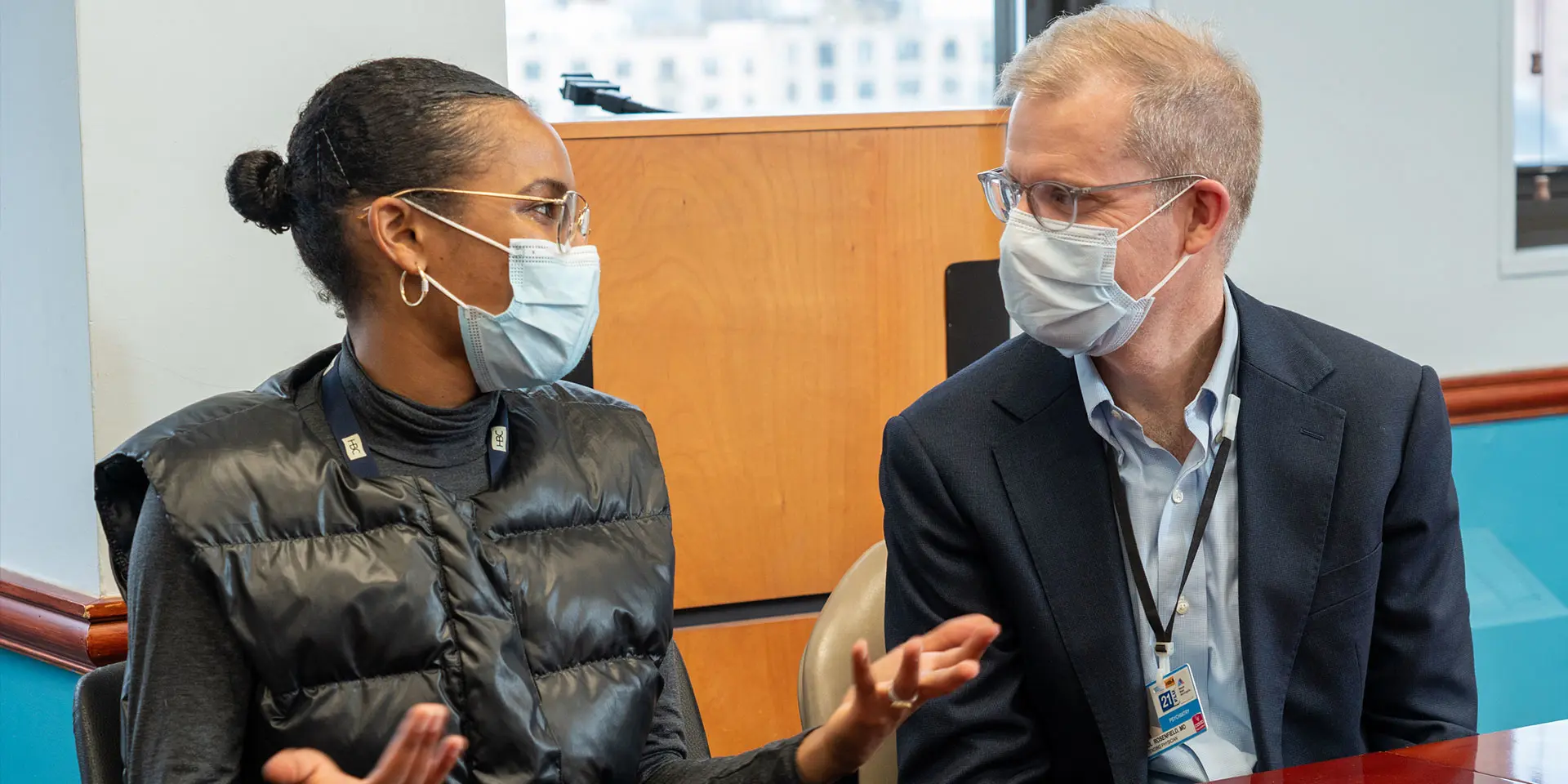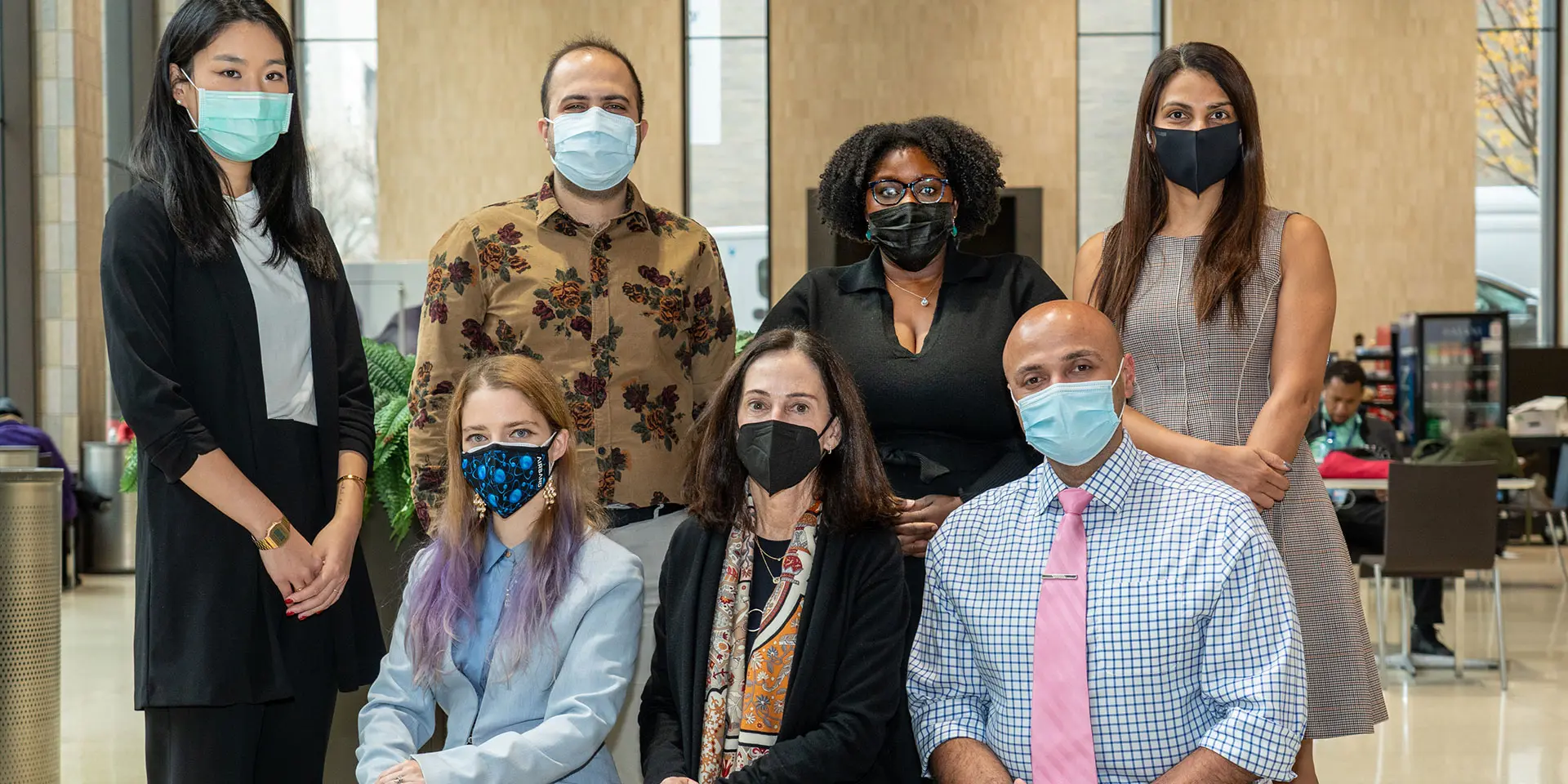Diversity, equity, and inclusion (DEI) within Mount Sinai’s Department of Psychiatry goes well beyond the reinforcement of the Mount Sinai Health System’s core institutional values. Working closely with the Health System’s Office for Diversity and Inclusion (ODI), the Department’s 40-member DEI Steering Committee stands as a tailored, psychiatry specific initiative to foster fundamental improvement and change in a field whose past
shortcomings have been top of mind among faculty in recent years.
Dolores Malaspina, MD, MS, MSPH, Professor of Psychiatry, Genetics and Genomic Sciences, and Neuroscience, and Co-Chair of the Psychiatry DEI Steering Committee, says, “It is absolutely vital that we train residents, students, and psychiatrists on the sensitive issues of social justice and diversity, as well as the elimination of race-based discrepancies in the diagnosis and treatment of our patients. We’re equally committed to having racially and ethnically diverse faculty and trainees who reflect the community we serve, and we are helping to evaluate and tailor our department’s recruitment practices around that essential need.”
“There’s been a longstanding history of systematized racism and oppression in our field, for which the American Psychiatric Association and the American Psychological Association have issued apologies,” says Shilpa Taufique, PhD, Assistant Professor of Psychiatry at the Icahn School of Medicine at Mount Sinai, and Co-Chair of the Psychiatry DEI Steering Committee. “That’s given us full permission, as well as the responsibility, to openly discuss all forms of racism, bias, and discrimination with our patients, trainees, faculty, staff, colleagues, and our leaders.”
“We’re equally committed to having racially and ethnically diverse faculty and trainees who reflect the community we serve, and we are helping to evaluate and tailor our department’s recruitment practices around that essential need.”
- Dolores Malaspina, MD, MS, MSPH
The Committee has organized wide-ranging activities, including a lecture series open to the public. The series features speakers from diverse backgrounds presenting on challenges in mental health care faced by providers, patients, and the community. For example, the inaugural lecturer in January was psychologist Hawthorne Smith, PhD, an outside expert in refugee trauma and the survival of torture.
In addition, the Committee works with ODI to implement Mount Sinai’s system-wide initiatives such as “Chats for Change,” which facilitates informal discussions among colleagues that are held within medical units during staff breaks. Committee members have also provided spontaneous support to Asian-American students and faculty who have been targets of hatred and violence in New York City.
On a broader scale, the Committee is evaluating and developing policies and practices that will move the needle in four areas that are critical to the Department of Psychiatry: recruitment and retention, trainee and faculty education and training, delivery of clinical
services, and diversity in research.
Offering a welcoming environment for a culturally and racially diverse faculty is a major priority. “We need to recruit them, retain them, and draw on their vast wisdom,” says Dr. Malaspina. “In those ways, we demonstrate that we’re a progressive department where
underrepresented faculty in medicine want to be.”
Featured

Dolores Malaspina, MD, MS, MSPH
Director, Critical Connections Psychosis Program, and Professor of Psychiatry, Genetics and Genomic Sciences, and Neuroscience

Shilpa Taufique, PhD
Director, Comprehensive Adolescent Rehabilitation and Education Service (CARES); Chief Psychologist, Division of Psychology






